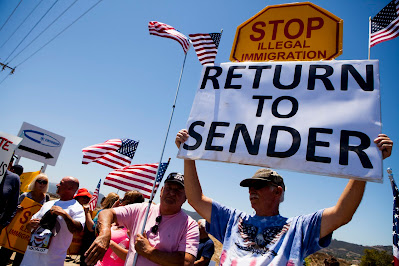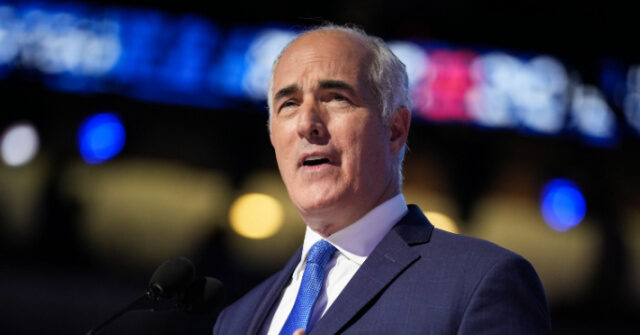
One of the hot topics of the 2024 presidential election is the use of what Republicans have called “lawfare” by the Democrats, using the law—and especially criminal law—to go after political opponents by using the system to charge them with questionable crimes. I myself have denounced it here and here.
There is no way to justify this use of criminal law except to say that it is a tool by political and economic elites to accomplish the same thing as Third World dictators have done, but do so using high-minded terms like “rule of law” and “fairness” as a cover for the use of naked political power. Furthermore, the elites have accepted it as a legitimate way to further their own power.
With all the references to lawfare, one would think it was a relatively new thing; it is not. In fact, Democrat presidents and, to a much lesser extent, Richard Nixon, have used the Internal Revenue Service as their political weapon of choice. The Franklin Roosevelt administration used the IRS to go after former Secretary of the Treasury Andrew Mellon but was unsuccessful in convicting and imprisoning him. However, FDR did discover that the Internal Revenue Service was a handy weapon to wield against people he considered to be his political opponents and went after others like Huey Long.
While Democratic presidents like FDR, John F. Kennedy, and Barack Obama have preferred the IRS as a political weapon, Republicans turned to the RICO statutes in the 1980s and terrorism laws after the 9/11 attacks and now find that what they did is blowing back on them. To understand how we got to this present place, we first must know what happened.
Forty years ago, in the wake of financial deregulation and the rise of new technologies being commercialized, Wall Street was being transformed. As Murray Rothbard wrote:
During the 1960s, the existing corporate power elite, often running their corporations inefficiently—an elite virtually headed by David Rockefeller—saw their positions threatened by takeover bids, in which outside financial interests bid for stockholder support against their own inept managerial elites. The exiting corporate elites turned—as usual—for aid and bailout from the federal government, which obligingly passed the Williams Act [named for the New Jersey Senator who was later sent to jail in the Abscam affair] in 1967. Before the Williams Act, takeover bids could occur quickly and silently, with little hassle. The 1967 Act, however, gravely crippled takeover bids by decreeing that if a financial group amassed more than 5% of the stock of a corporation, it would have to stop, publicly announce its intent to arrange a takeover bid, and then wait for a certain time period before it could proceed on its plans. What Milken did was to resurrect and make flourish the takeover bid concept through the issue of high yield bonds (the “leveraged buyout”).
From the New Deal until the late 1970s, the US financial system was a government-organized cartel that was extremely risk-averse and favored the existing corporate elites over the newly-emerging high-technology firms. However, Michael Milken, working with the upstart investment banking firm, Drexel Burnham Lambert, promoted the use of unsecured, high-yield bonds to finance new operations that the cartelized banking system would never have touched.
For example, Milken raised funds for Cable News Network (CNN) which, at its founding in 1980, was thought to be a bridge too far for news broadcasting, and the banks and Wall Street were not interested in working with an iconoclastic figure like CNN’s founder, Ted Turner. Milken also led the financing of McCaw Cellular which pioneered cellphone technology and later became part of AT&T. Today, we cannot imagine life before cellphones, but had established Wall Street firms had their way, this industry would not have existed at all.
It was bad enough that Milken and his investment bank, as well as other Wall Street upstarts, were doing an end run around the established financial system. However, they also spurred a rash of corporate takeovers, which upset a number of people from leftists like John Kenneth Galbraith to establishment banker David Rockefeller and then-businessman Donald Trump. Wrote Rothbard:
The new takeover process enraged the Rockefeller-type corporate elite, and enriched both Mr. Milken and his employers, who had the sound business sense to hire Milken on commission, and to keep the commission going despite the wrath of the establishment. In the process Drexel Burnham grew from a small, third-tier investment firm to one of the giants of Wall Street.
The establishment was bitter for many reasons. The big banks who were tied in with the existing, inefficient corporate elites, found that the upstart takeover groups could make an end run around the banks by floating high-yield bonds on the open market. The competition also proved inconvenient for firms who issue and trade in blue-chip, but low-yield, bonds; these firms soon persuaded their allies in the establishment media to sneeringly refer to their high-yield competition as “junk” bonds, which is equivalent to the makers of Porsches persuading the press to refer to Volvos as “junk” cars.
Of course, the financial and political elites could not handle this by producing their own competitive financial instruments. After all, the 1980s were the “Decade of Greed” produced by Ronald Reagan, who apparently was guilty of unleashing a wave of free markets that was going to destroy the economy, or worse. Instead, a new hero came from the ranks of Republican officialdom—Rudy Giuliani—whom Reagan appointed as US Attorney for the Southern District of New York, which includes Manhattan.
Giuliani had political ambitions and decided the best way way to get support was to go after Milken and other Wall Street upstarts. For The New York Times and New Yorker crowd, he was fighting greed and capitalism. For the established Wall Street firms, such as Goldman-Sachs, he would be promoting responsible and respectable capitalism.
His legal tool of choice was RICO, which was created in 1970 as a way of moving cases against organized crime from state courts and federalizing the charges in an attempt to gain more convictions. However, using RICO to criminalize routine financial transactions was new territory and, while some economists and lawyers raised obvious objections to where such prosecutions might lead, the academic, media, and political establishments treated Giuliani and his staff as financial and legal messiahs.
As Daniel Fischel notes in his book, Payback: The Conspiracy to Destroy Michael Milken and His Financial Revolution, Giuliani and his lieutenants scoured the transactions to see if there were any possible regulatory violations that could be criminalized. Since most regulatory violations fell under civil statutes with no criminal penalties, Giuliani made liberal use of the conspiracy laws to pile up dozens of charges from single transactions, making it appear as though Milken and others had committed serious legal violations. In truth, as Giuliani Lieutenant John Carroll bragged to some Rutgers University law students in 1992, prosecutors found “crimes” that had never existed before and were engaged in “criminalizing technical offenses” by using “novel” criminal theories.
There were no gatekeepers to hold Giuliani in check until the appeals courts later overturned some of the convictions, but those were pyrrhic victories for the rule of law, since Giuliani’s relentless prosecutions had driven firms and targeted individuals into bankruptcy. Milken himself pleaded guilty not because he had committed real crimes but because federal prosecutors were threatening his family. As I wrote in Regulation:
In the end, federal prosecutors (after FBI agents went so far as to question Milken’s 92-year-old grandfather) employed perhaps their most powerful weapon, using coercive methods to obtain a guilty plea: if Milken would agree to plead to six non-consequential “crimes,” then the Department of Justice would lay off his family. Milken agreed, although, as prosecutor Carroll would admit three years later, the actual charges were a product of prosecutorial creativity, not real criminal conduct. In fact, before Giuliani hit the scene, Milken might have paid a relatively small fine at worst.
With Giuliani setting the table for lawfare on a massive scale, he also unleashed federal prosecutors to go after others. The federal prison population, which stood at about 20,000 in 1980, increased 10-fold in the next 20 years and federal prosecutors became major players in the drug war.
Of course, Giuliani rode his legal hero status into the mayor’s mansion in New York City, supported by the Wall Street establishment and the progressive media. The irony is that his expansion of the use of the RICO statutes to target people who were politically unpopular would enable unscrupulous prosecutors to indict him on state RICO charges in Georgia for allegedly interfering with the 2020 presidential election.
Without going into details of that case, it is safe to say that Giuliani’s criminalization of, at worst, regulatory violations in the 1980s, opened a Pandora’s Box for prosecutors. Certainly the vast expansion of the terrorism statutes imposed following the 9/11 attacks would not have been possible without Giuliani’s earlier legal rampages, as federal prosecutors were empowered to do whatever they wanted. Riding the wave of hysteria after the attacks, a Republican Congress pushed through the Patriot Act and other laws that made it possible for federal prosecutors to box in the accused, even if their actions were nothing close to terrorism.
Or take Trump’s Manhattan conviction, for example. Prosecutor Alvin Bragg’s case was admittedly based upon “novel” legal theory and most legal observers have said it is doubtful that anyone else will be charged with the particular “crimes” that the Manhattan jurors claimed to have seen, a replay of what we saw with Giuliani’s cases in the 1980s.
While Republicans today rightly decry the political lawfare that Democrats have waged against Trump and others, they should not protest too loudly. Four decades ago, Republicans opened the box and now have found that they cannot put back what they unleashed.
Originally Posted at https://mises.org/
Stay Updated with news.freeptomaineradio.com’s Daily Newsletter
Stay informed! Subscribe to our daily newsletter to receive updates on our latest blog posts directly in your inbox. Don’t let important information get buried by big tech.
Current subscribers:






